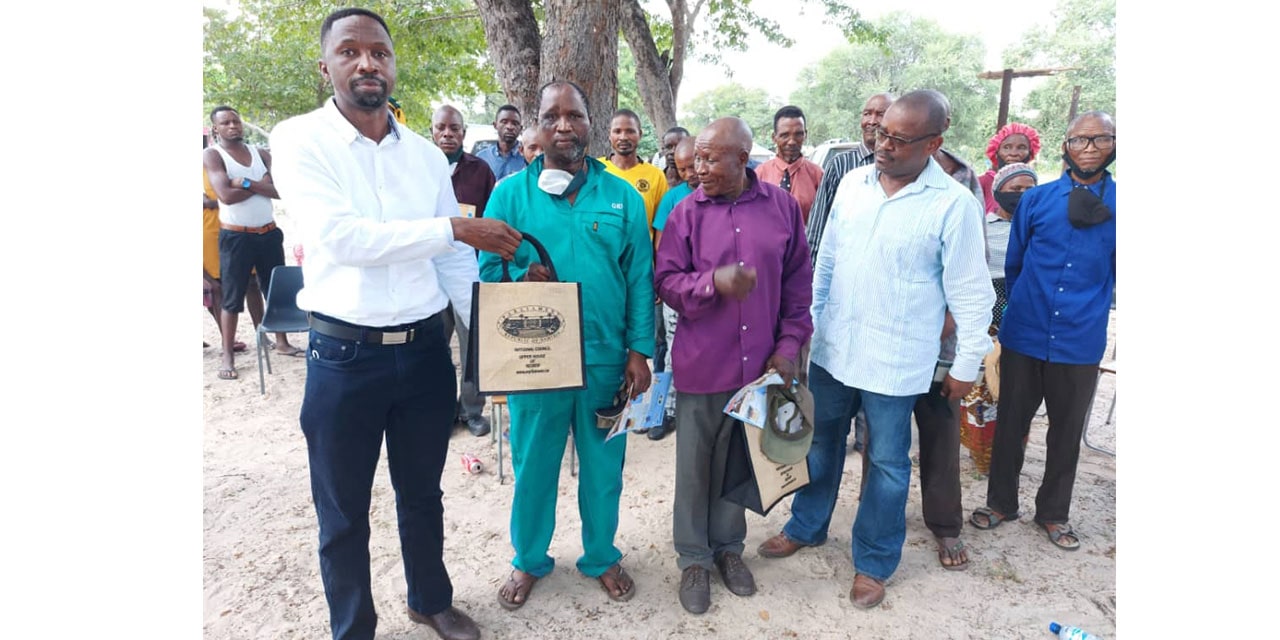Martin Endjala
The two week outreach program of the National Council’s (NC) chairperson Lukas Sinimbo Muha was concluded on Saturday in the Kavango East Region at Omega in Mukwe constituency in positive spirits, NC secretary advocate Tousy Namiseb told the Windhoek Observer in a wide ranging interview. He said the lack of information about what the National Council does as one of the legislative arms of the State is worrying, he said.
Namiseb described the outreach program as fruitful, and believes that its objective has been achieved. ”What is left now is to write a detailed report and hand it over to the National Assembly to expand on their findings.
The aim was to bring parliament closer to the people in the regions, particularly communities by sensitizing them on the NC roles and functions – which are to make laws, review bills before they are passed by the NA and to also explain the oversight functions, which are to go on fact finding missions and assess service delivery issues.
Infrastructure, service deliveries and many other functions were some of the highlighted issues by the NC delegations. The mission found a lack of understanding of law pertaining to marriage in the regions north of the redline, Namiseb said.
The delegations also shared information with the communities what and who parliament is and discovered that people often think that parliament is only the National Assembly.
Other pertinent issues the mission looked at were the plight of small scale farms in some communities, which face problems of procurement for their farming enterprises as well as not being paid on time for their produce.
This results in them defaulting on their financial commitments, with institutions such as Agribank. Namiseb further said that a green scheme in Omashare that is privately owned is doing well even exporting berries to international markets.
Professor Henning Melber, told the Windhoek Observer today that it is a good practice that elected political office bearers interact with the people, whom they are supposed to represent.
However, the success of these engagements depend on the nature and sincerity with which the local communities are engaged, he said, when asked about the benefits of such programs to the regions.
“If they are tokenistic it is a waste of time and taxpayers money, and it requires transparency and accountability and the will to listen instead of only talking”, Melber said.
Melber went on to say that he cannot judge to what extent such visits follow the investigative approach to identify challenges and problems, or if they are just for familiarization purposes, which mainly happens in a cozy atmosphere of lodges and hotels with interaction limited to like-minded local officials.
Henceforth, it is for the people at the grassroots level to judge for themselves the sincerity of the engagement. ”Who is involved, do ordinary people have a chance to be listened to?
Were they provided the opportunity to interact,? are the questions the professor wanted to know himself, when asked if these programs do bear the expected results in the end.
Muha visited various green schemes in the region and also assessed the developments at the Uuvhungu-Vhungu, Mashare, Ndonga Linena and Shadikongoro green schemes. The delegation held meetings with the Ndiyona community and Ndiyona Secondary School learners where Muha was received with songs and dances.
The delegation assessed the incomplete clinic at Shamaturu and proceeded to Shamunro and held a meeting with members of the community and the pupils of Shamunaro Primary School. Muha also paid a courtesy call to the Gcriku Traditional Authorities. Namiseb hinted Muha intends to continue and conclude visits to all regions once the new budget is passed.




